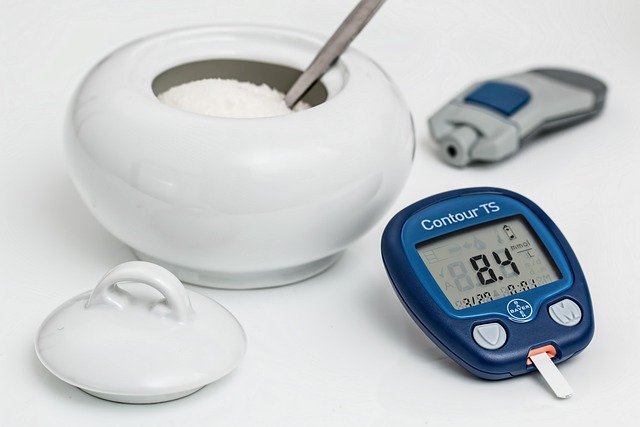The UK Advanced Liver Blood Test (ALBT) is a powerful diagnostic tool for reproductive health issues, analyzing hormones like estrogen, progesterone, and testosterone to identify imbalances linked to infertility or menstrual irregularities. Accurate interpretation of ALBT results is key to effective treatment, with the test revealing hormonal abnormalities often missed by standard tests, aiding diagnoses of conditions like PCOS. Understanding ALBT results enables tailored treatments, including hormone replacement therapy and lifestyle modifications, to optimize fertility. Regular follow-up tests monitor progress and adjust treatment plans.
In the UK, hormone analysis plays a pivotal role in addressing reproductive issues. This comprehensive guide delves into the intricacies of hormone analysis for reproductive health, highlighting the significance of advanced liver blood tests in diagnosing hormonal imbalances. We explore how these tests, utilizing cutting-edge technology, provide crucial insights into fertility challenges. By interpreting results accurately, healthcare professionals can orchestrate tailored next steps, optimising fertility care and enhancing chances of successful conception.
- Understanding Hormone Analysis for Reproductive Health in the UK
- The Role of Advanced Liver Blood Tests in Diagnosing Hormonal Imbalances
- Interpreting Results and Next Steps for Optimal Fertility Care
Understanding Hormone Analysis for Reproductive Health in the UK
Hormone analysis plays a pivotal role in assessing and diagnosing reproductive health issues in the UK. This advanced diagnostic tool involves examining hormone levels in blood samples, offering valuable insights into the intricate balance of hormones that regulate fertility. In the context of the UK, healthcare professionals often recommend an Advanced Liver Blood Test (ALBT) as a comprehensive way to evaluate hormone function.
By analysing various hormones, such as estrogen, progesterone, and testosterone, ALBT helps identify imbalances or deficiencies that may contribute to infertility. This test is particularly useful for individuals experiencing menstrual irregularities, irregular ovulation, or challenges conceiving. Understanding the results of an ALBT requires expert interpretation, ensuring that any hormonal discrepancies are accurately diagnosed and treated effectively to optimise reproductive health.
The Role of Advanced Liver Blood Tests in Diagnosing Hormonal Imbalances
In the quest to unravel reproductive mysteries, advanced liver blood tests in the UK emerge as a powerful tool for diagnosing hormonal imbalances. These comprehensive assessments go beyond traditional measures by delving into the intricate relationship between the liver and the endocrine system. By analysing various liver enzymes and markers, healthcare professionals can uncover subtle signals of hormonal dysregulation that might otherwise remain undetected.
The UK Advanced Liver Blood Test offers a holistic view, enabling practitioners to identify imbalances in sex hormones like oestrogen and testosterone, as well as thyroid hormones, which play a pivotal role in metabolic balance. This meticulous analysis facilitates precise diagnoses, tailoring treatment plans to address the root causes of reproductive challenges, be it polycystic ovary syndrome (PCOS), infertility, or other hormonal disorders.
Interpreting Results and Next Steps for Optimal Fertility Care
Understanding your hormone analysis results is crucial for navigating the path to optimal fertility care. After undergoing a UK Advanced Liver Blood Test, which assesses key hormones involved in reproductive health, your healthcare provider will interpret the data to identify any imbalances or abnormalities. This may include elevated levels of LH (Luteinizing Hormone), suggesting potential ovulation issues, or low FSH (Follicle-Stimulating Hormone) values indicating a decline in egg quality and quantity. Once identified, these insights enable tailored interventions.
The next steps could involve targeted hormone replacement therapy to restore balance, such as adding medications like Clomiphene or Gonadotropins to stimulate ovulation. Lifestyle modifications, including diet adjustments and regular exercise, may also be recommended to support hormonal harmony. Regular follow-up tests are essential to monitor progress and adjust treatment plans accordingly, ultimately enhancing the chances of achieving optimal fertility outcomes.
Hormone analysis, coupled with advanced liver blood tests, plays a pivotal role in diagnosing and managing reproductive issues in the UK. By interpreting these results accurately, healthcare professionals can tailor fertility care plans for optimal outcomes. This comprehensive approach ensures that individuals seeking to conceive receive the personalized support needed to navigate potential hormonal imbalances successfully.
